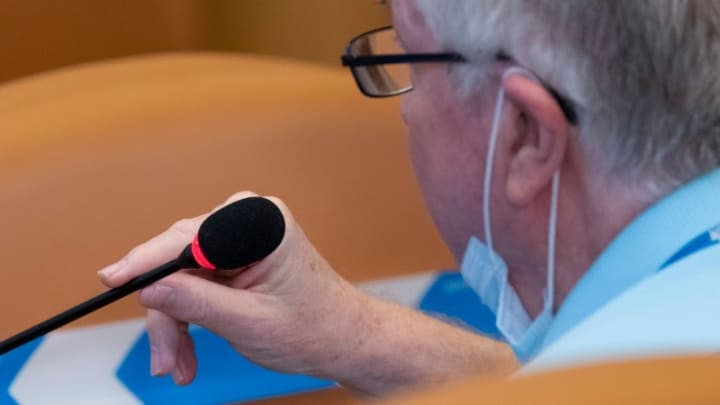Opinion: No space for dissent — how development banks are supporting governments

Since the COVID-19 pandemic started, multilateral development banks have committed nearly $100 billion for hundreds of coronavirus-related projects. But are these funds really benefiting those in need? And what’s happening to those who are raising questions around transparency and accountability for these funds?
Most banks commit to ensuring high levels of social and environmental safeguards, but it seems nothing more than a box-ticking exercise. Much of the funding is going toward countries with very poor human rights records, such as Zimbabwe, Egypt, and Pakistan, where it might never reach those most vulnerable, and many governments are using the pandemic as a pretext to further restrict dissenting voices.
Journalists, bloggers, medical workers, human rights defenders, and all those raising concerns about inadequate responses to the crisis — including emergency support directly funded by development banks — are facing threats, arrests, attacks, and stigmatization.
In July, Uzbek blogger Miraziz Bazarov published a series of social media posts about the misuse of international aid and an open letter to the Asian Development Bank and International Monetary Fund about an alleged corruption case related to their funding for the COVID-19 response.
Right after he published this, Bazarov was summoned by the State Security Service, which tried to interrogate him without the presence of a lawyer. The officers eventually gave up when the blogger refused to enter the police station alone. Shortly after, his phone was hacked and he was slandered and harassed on social media, he told me in a letter.
Bazarov’s case is far from isolated. There are worrying reports from press freedom organizations from all over the world.
In Pakistan — where the COVID-19 response is being supported by the World Bank, the Asian Development Bank and the Asian Infrastructure Investment Bank — journalists are facing threats, restrictions, and physical attacks. In June, Saeed Ali Achakzai and Abdul Mateen Achakzai were held for three days by a paramilitary force and tortured after reporting on a public protest against the poor facilities at a quarantine center in Balochistan.
COVID-19 is not an ‘excuse’ for human rights violations, UN human rights chief says
The pandemic is worsening preexisting human rights violations, Michelle Bachelet said in an interview with Devex, as she also called for more engagement from the U.S.
In Egypt, at least seven doctors and 10 journalists have been arrested since February for criticizing the government’s inadequate COVID-19 response. Mohamed Mounir, founder of the Front for the Defense of Journalists and Freedoms, was arrested in June and accused of “spreading fake news,” joining a terrorist organization, and misusing social media. He died a month later after contracting COVID-19 in jail, just a few days after being released on bail.
In total, Egypt has been granted $2.4 billion dollars, mainly through loans by the European Investment Bank, the European Bank for Reconstruction and Development, and the World Bank.
In Zimbabwe, journalist Hopewell Chin’ono spent 45 days in custody following his investigation into alleged COVID-19 procurement fraud within the Ministry of Health and Child Care, which led to the arrest and dismissal of Health Minister Obadiah Moyo, according to the BBC.
While development banks’ rapid and large-scale financial response to the pandemic is justified, the need to act quickly has overshadowed the equally important needs for transparency, accountability, and respect for human rights.
—
Mduduzi Mathuthu, another Zimbabwean journalist who reported on the same scandal, is still in hiding as he fears for his life. In July, security forces raided his house and — failing to find him — arrested his sister and three of his nephews. According to the Media…
Read More: Opinion: No space for dissent — how development banks are supporting governments














